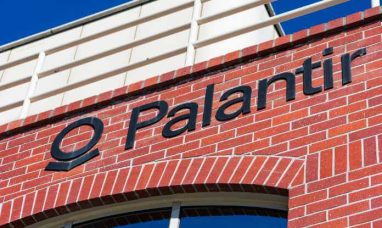Mastercard (NYSE:MA) reported impressive third-quarter earnings for 2024, beating market estimates and showcasing substantial growth in key operational metrics. The payment technology giant delivered adjusted earnings of $3.89 per share, surpassing the Consensus Estimate by 4.3% and marking a 15% increase over the prior year. Mastercard’s shares rose 1.7% in pre-market trading on the positive news.
Net revenue for Q3 totaled $7.4 billion, a 13% year-over-year rise that topped consensus expectations by 1.6%. Mastercard attributed this growth to heightened gross dollar volumes, an uptick in cross-border transactions, and growing demand for its value-added services.
Key Metrics in Mastercard’s Q3 Performance
Mastercard’s gross dollar volume—a measure of all purchases and cash disbursements made with Mastercard-branded cards—increased by 10% on a local currency basis, reaching $2.5 trillion. Although this number was slightly below the consensus estimate of $2.52 trillion, it signals solid growth in card usage among Mastercard’s global clientele.
Cross-border volumes, a crucial measure that indicates spending beyond the issuing country, rose by 17% in local currency terms. Meanwhile, switched transactions—the number of transactions facilitated by Mastercard’s products—saw an 11% year-over-year increase to 41.1 billion, exceeding the consensus target of 40.7 billion.
Revenue from Mastercard’s value-added services grew by 18% year over year, totaling $2.7 billion, in line with expectations. The growth was fueled by demand for consulting, marketing, and security solutions, as well as fraud prevention and identity verification services, all critical for secure payment processing.
Expenses and Operating Performance
Mastercard reported an increase in operating expenses, up 12% year over year to $3 billion, due to higher administrative costs. Despite this, operating income rose by 4% to $4 billion, although it narrowly missed the internal estimate of $4.03 billion. Mastercard’s operating margin contracted by 450 basis points, landing at 54.3%, reflecting increased expenses associated with expanded client incentives and new business deals.
Rebates and incentives rose by 17% year over year, driven by Mastercard’s commitment to client retention and new partnerships. Mastercard issued 3.4 billion Mastercard and Maestro-branded cards by the end of Q3, reinforcing its expansive network reach.
Financial Position and Cash Flow
As of September 30, 2024, Mastercard maintained a strong cash position, holding $11.1 billion in cash and cash equivalents—a 29% increase from the end of 2023. The company’s total assets reached $47.2 billion, an 11.3% increase since year-end 2023. With $750 million in short-term debt and $17.6 billion in long-term debt, Mastercard remains well-positioned to manage its financial obligations.
Mastercard also generated robust cash flows from operations, totaling $9.9 billion in the first nine months of 2024, marking a 26.7% increase from the same period in the prior year.
Share Buybacks and Dividend Payments
Mastercard continued its commitment to shareholder returns, repurchasing 6.3 million shares for $2.9 billion during Q3. Between October 1 and October 28, it bought back an additional 2 million shares for $983 million, leaving a buyback capacity of $5.6 billion. Mastercard also paid $611 million in dividends during the quarter, reflecting its ongoing focus on enhancing shareholder value.
Mastercard’s Guidance for Q4 and 2024
Looking ahead to the fourth quarter, Mastercard expects net revenue growth in the low-teens year-over-year, with adjusted operating expenses projected to grow at the high end of low double digits. For 2024, Mastercard’s guidance anticipates net revenue growth in the low-double-digit range over 2023, with operating expenses expected to increase in the low double digits.
Conclusion: Mastercard’s Continued Strength in Payments
Mastercard’s Q3 earnings report highlights its strong performance across critical metrics, driven by rising consumer spending and cross-border transaction growth. As digital payments continue to expand globally, Mastercard’s focus on value-added services and strategic client incentives solidifies its market position. With a robust cash flow and substantial buyback program, Mastercard remains well-equipped to navigate evolving market conditions and sustain growth. Investors will be watching how these metrics develop in Q4 as Mastercard adapts to changing consumer and business needs in the fast-paced payment technology landscape.
Featured Image: Pixabay © Alina Kuptsova









